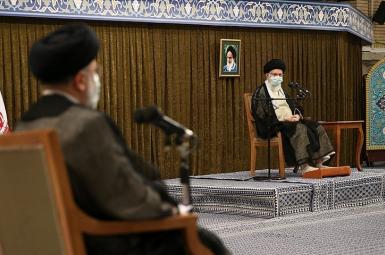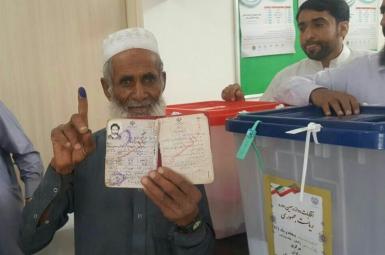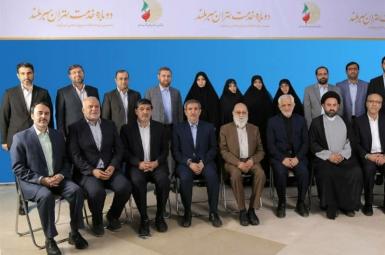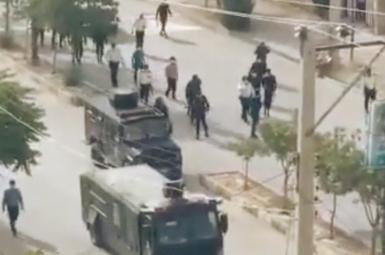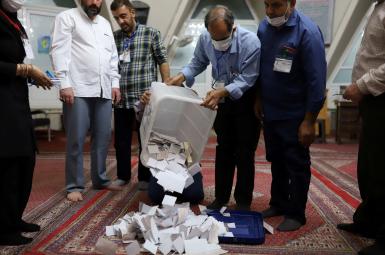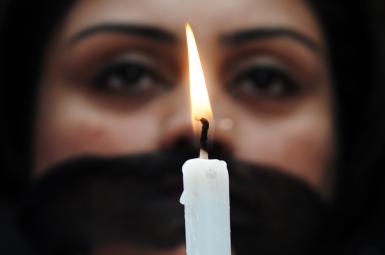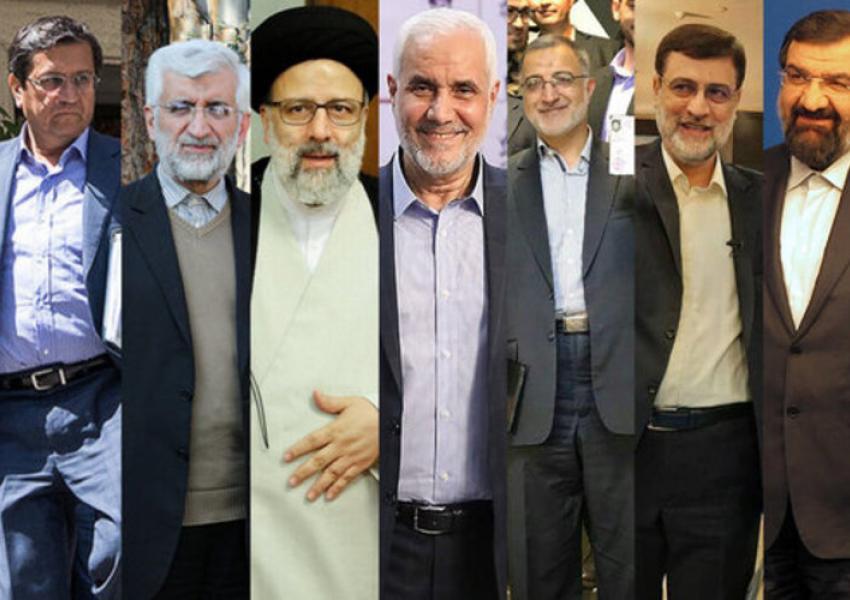
Jobs, Inflation, Loans For Newlyweds: Iran Candidates Turn To The Economy
Candidates in Iran’s June 18 presidential election are focusing on the economy – including combating corruption. Some are pledging to boost cash hand-outs and loans pioneered under the presidential administration of Mahmoud Ahmadinejad (2005-13).
"The people do not care about the candidates' views about social media or foreign policy,” Supreme Leader Ali Khamenei said in a speech to parliamentarians on Thursday [May 27]. “The people have other problems such as unemployment and hardship among low-income parts of the society, and the wrong policies that hinder national production.”
Khamenei's analysis of what people want conveniently omits the fact that the economy depends on good relations with the West, afluent regional countries and a change in Tehran's worldview of constantly enetering foreign adventures.
Ebrahim Raeesi (Raisi) − the chief justice widely believed to be the election frontrunner − has pledged to create one million new jobs a year, give all Iranians a monthly cash hand-out of 4.5 million rials (roughly $18), and offer 5-billion-rial loans (roughly $2,100) to young couples. He has also promised government transparency, reducing inflation from around 50 percent to below 10 percent, and cutting healthcare costs in half. Fighting corruption, Raeesi says, will be a top priority.
This ambitious agenda would need a huge change in Iran’s economic realities, not only having US sanctions lifted but also overhauling the state-controlled economy.
Mohsen Rezaei, former Revolutionary Guards commander and like Raeesi a principlist, has promised the same level of cash hand-outs. He also committed to set up new national fund, including share ownership, based on oil and gas revenue.
Saeed Jalili, who served as Iran's top nuclear negotiator during Ahmadinejad's presidency, is promising to boost exports, and direct liquidity towards investment in industries such as petrochemicals and refineries. He has pledged to make highly nutritious food accessible to all and provide opportunities to travel, including three nights of free accommodation at government-owned hotels for young honeymooners.
Similar promises have been made by principlist Amir-Hossein Ghazizadeh-Hashemi, with a 5- billion-rial loan to young couples, but he has promised to cut inflation to 5 percent and has emphasized building housing for the less well-off.
Another principlist candidate, Alireza Zakani, a strident critic of Iran’s 2015 nuclear agreement with world powers, the Joint Comprehensive Plan of Action (JCPOA), has suggested Iran should neutralize the effect of sanctions by "using the economy of the 15 neighboring countries" instead of trying to revive the JCPOA. But he has also declared he would negotiate with world powers, with Khamenei’s blessing, if elected.
The problem with doing business with neighboring countries is that if it were possible, it would have been done by now. Many of these countries have little interest in trading with Iran and even if they do, they cannot pay cash to Iran because of US banking sanctions.
The former governor of Iran's Central Bank Abdolnaser Hemmati has also focused on the economy but offered a wider platform. Hemmati's slogan, "Interaction At Home and Interaction With the World,” evokes Rouhani’s 2013 and 2017 programs of increasing international links, including through the JCPOA, and passing laws needed for Iran to leave the blacklist of the global anti-money-laundering Financial Action Task Force (FATF).
Reformist former vice-president Mohsen Mehralizadeh has suggested his government would reduce the government’s share in the economy to 20-25 percent from what he said was now 67 percent.
Both Hemmati and Mehralizadeh are running as independents, with the Reforms Front, an umbrella grouping that backed Rouhani in 2013 and 2017, refusing to back any candidate.
Khamenei has often highlighted the need to combat corruption. In 2017 Iran ranked 130th among 177 countries rated by the global corruption watchdog Transparency International's Corruption Perception Index (CPI), but dropped by 2020 to 149th.

